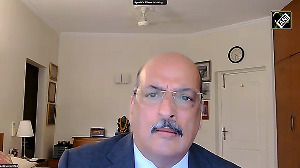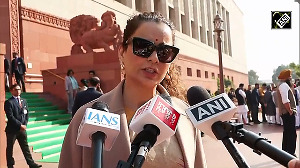"Ours is a self-reliant programme where the research and development in our laboratories has been successfully translated into a commercially successful and robust nuclear power programme based on PHWRs, whose performance is on par or better than global benchmarks," he said.
In his convocation address at the Birla Institute of Technology in Mesra, Kakodkar said the self-reliant capability to develop indigenous nuclear technologies had been realised by scientists and engineers, most of whom are educated and trained in India.
"This is an example of Indian capability to develop new and difficult technologies successfully in spite of the external embargo." Kakodkar, also secretary of the atomic energy department, said the country's modest uranium resources and vast energy potential of its thorium deposits had necessiated the adoption of a three-stage nuclear power progamme.
"While the first stage is well into the commercial domain, we will similarly translate our research and development to commercial scale exploitation for the second and third stage as well," he said.
Kakodkar said a beginning in commercial activity in the second stage had already been made as construction of a 500 MW prototype fast breeder reactor is in progress.
"A noteworthy characteristic of the fast breeder reactor is the fact that it does not require any further mining of uranium an it enables recycling of uranium that has already been used in the PHWR," he said.
Referring to global energy needs, Kakodkar said nuclear power had the pontential to meet these requirements in a sustainable manner and at the same time keep carbon dioxide emissions at the lowest possible levels.
"This (keeping emissions at the lowest level) is very important since the threat of irreversible global climate change now appears to be a reality... coming about at a time when India is on a rapid economic growth path...(and needs) access to energy at an order of magnitude higher than the present level," Kakodkar said.
At a time when the world will be searching for ways to reduce carbon dioxide emissions, Kakodkar said nuclear energy stands out as an "inevitable option". Visualising a nuclear renaissance, he told students of the need to remain in the country and work in areas that allow them to contribute to national development in a meaningful manner.
"Even if you decide to go abroad, always remember that in the process of your professional growth, you could prepare yourself even better to bring in larger benefits to your country," Kakodkar said.





